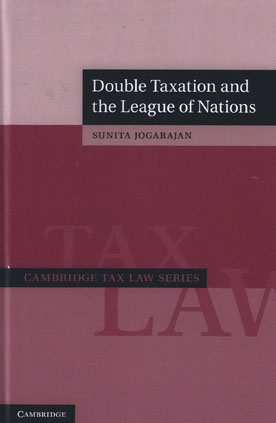
Modern-day tax treaties have their foundations in one of the three Model Tax Treaties developed by the League of Nations in 1928. Using previously unexplored archival material, Sunita Jogarajan provides the first in-depth examination of the development of the League's Models. This new research provides insights into questions such as the importance of double taxation vs tax evasion; the preference for source-taxation vs residence-taxation; the influence of theory and practice on the League's work; the development of bilateral rather than multilateral treaties; the influence of developing countries on the League's work; the role of Commentary in interpreting model tax treaties; and the influential factors and key individuals involved. A better understanding of the development of the original models will inform and help guide interpretation and reform of modern-day tax treaties. Additionally, this book will be of interest to scholars of international relations and the development of law at international organisations.